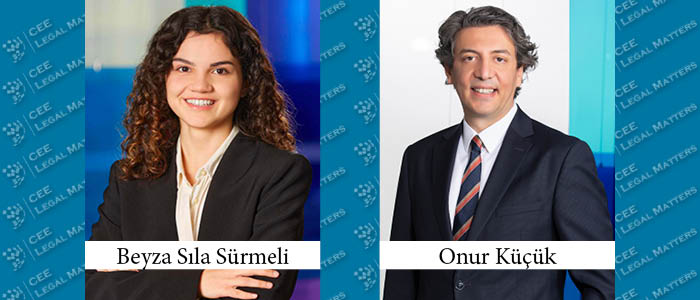The rapid developments in the world of technology put the law into a difficult concept puzzle to follow. While the discussions on smart contracts made with blockchain technology have not yet ended, a new organization that can direct the life of business has taken its place in the international market; Decentralized Autonomous Organization (DAO). This mechanism offers people new democratized ways to operate their organizations, radically separated traditional institutions.
How decentralized organizations work?
Smart contracts enable the execution of a distributed system between many people organized in a network. The terms agreed between the parties are signed in encrypted form and uploaded to the blockchain. Smart contracts on the Ethereum blockchain provide the foundation for DAOs. However, in the future, DAOs are expected to operate on different types of distributed systems.
When setting up a DAO, the rules are first determined, and a smart contract is prepared accordingly. Then, the fundraising phase begins and people who want to join the organization buy tokens using the cryptocurrency that the application processes. With this process, called tokenization, the funding activity is carried out just like the capitalization of a company. The accumulated funds are used for the DAO's activities, and the tokens give members rights such as voting, income from activities, etc. All these rights are used by answering questions in smart contracts, the responses to which are usually yes or no. Therefore, there is a fast and reliable flow in the overall organizational structure without the need for third parties.
Legal Status of DAOs
Although the organizational structure of the increasingly popular DAOs has common points with today's legal structures, it has not been regulated in almost any country's law. While there is a view that existing regulations are adequate for the needs of DAOs, it is widely accepted that the law is behind the developing technology. However, it should be noted that the purpose of developing DAOs is closely connected to the principle of "code is law", which is often mentioned in blockchain technology. This means that people who do not know each other trust a system whose immutability is guaranteed by blockchain technology. However, in 2016, due to an issue that was overlooked in the coding of theDAO project, an investor over and overused the withdrawal right and disappeared, taking about 40 million dollars in funding. In the wake of the scandal, the limits of the principle that the code is the law and the necessity to consider the rule of law have been discussed. For this reason, while "law" is the codified rules in smart contracts, it is of great importance that the legal regulations that will constitute a secondary protection are prepared in accordance with the DAO concept.
The first step for the regulations that will ensure the development and widespread use of DAOs worldwide came from the American State of Wyoming in 2021. In 1977, the state, which became famous for recognizing LLCs (Limited Liability Company), became a pioneer in the crypto sector by introducing a law recognizing DAOs as a different limited liability company. According to the law, DAOs will now be considered as a legal entity and, as a result, will be able to do all the business and transactions that a company can do. Later, following the example of this innovation in the State of Wyoming, the States of Tennessee and Vermont began to adopt similar regulations.
What the Ooki Case Shows Us?
The Commodity Futures Trading Commission ("CFTC") sued Ooki, a DAO operating as an unregistered derivatives exchange, alleging that it engaged in unauthorized leveraged trading, failed to register as a futures commission merchant (FCM), failed to implement know-your-customer (KYC) and customer identification program (CIP) procedures as required of FCMs under the Bank Secrecy Act, and violated the Commodity and Exchange Act.
The Turkish Commercial Code also defines ordinary partnerships apart from companies with legal personality. For an ordinary partnership to be formed, the elements of (i) person, (ii) capital, (iii) contract, (iv) common purpose and (v) will for the common purpose are required. Considering the functioning of DAOs, it seems possible to apply the ordinary partnership provisions by analogy.
Despite the many unknowns in the world of technology, interest in DAOs continues to grow day by day. In addition to organizations that have ended negatively, such as theDAO project mentioned above, there are many positive examples, such as the American CryptoFED DAO, the first DAO recognized in the State of Wyoming, and EnterDAO, a marketplace on Ethereum in Bulgaria that allows users to rent land in metaverse games. In addition, the Ooki Case also provides guidance in determining the legal liability of DAOs.
In order to increase the number of DAO examples in the coming period, it will be beneficial for the projects created to meet the technical and legal requirements and for the smart contracts created to meet the legal requirements in order to prevent possible disputes and to start the widespread use of DAOs.
* This article has been originally published on CoinDesk Türkiye on December 18, 2022.
By Onur Kucuk, Managing Partner and Beyza Sila Surmeli, Trainee, KP Law













